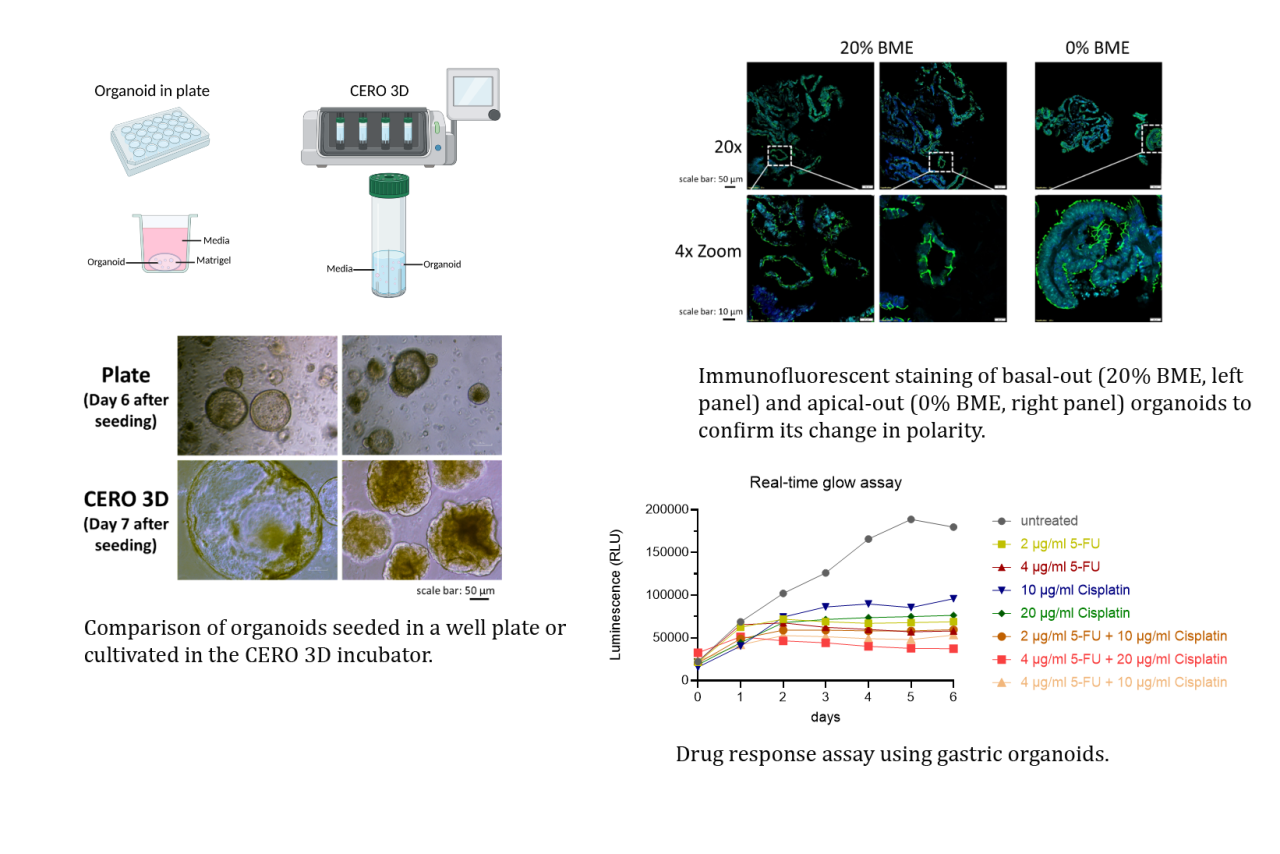Organoids are defined as stem cell-derived aggregates, which are cultured in an extracellular matrix to allow growth in 3D with similar characteristics as their organ of origin.
In our organoid facility, we are generating and utilizing gastrointestinal organoids to gain insight into the molecular mechanisms involved in cancer development, to study the interaction of bacteria with the epithelium, or to assess efficacy of therapeutic drugs especially in cancer therapy.
Organoids are an excellent model to study the interaction of bacteria to the epithelium avoiding the use of transformed cell lines. To infect organoids, the bacteria needs to be injected into the luminal part of the organoids or a monolayer has to be prepared so the bacteria can be added into the media. To expand the organoid culture in order to prepare a 2D culture, we make use of the CERO 3D incubator to cultivate and expand the gastric organoid culture. This technology has improved the yield of organoids generated and necessary to perform infection experiments and thus facilitates downstream analyses. More recently, we have successfully established the generation of apical-out organoids in our lab (based on https://doi.org/10.1038/s41596-021-00607-0(link is external)). We use those for infection experiments with bacteria related to malignant transformation in the gastrointestinal tract, such as Helicobacter pylori. Additionally, patient-derived tumor organoids are used to explore their response to different chemotherapeutics to tailor patient’s treatment.
